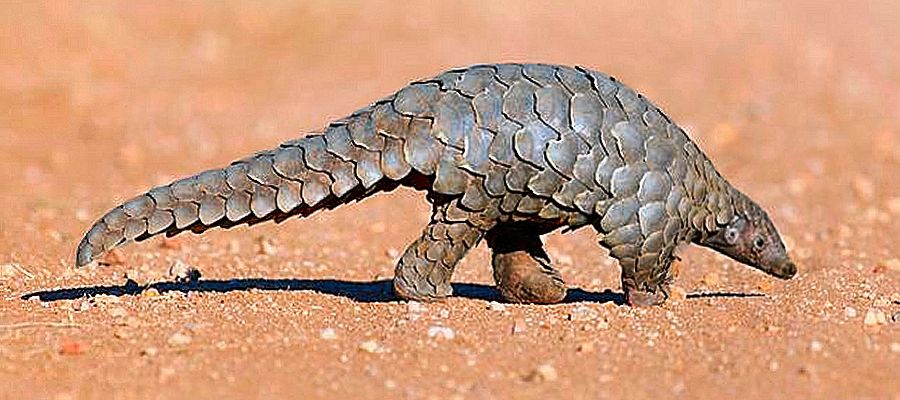CORONAVIRUS: THE PANGOLIN POTENTIAL MISSING CHAIN IN THE EPIDEMIC |
|
Researchers at the University of Agriculture in southern China have identified pangolin as "a possible intermediate host" that facilitated the transmission of the virus, the university said in a statement, without giving further details. An animal that harbors a virus without being sick and can transmit it to other species is called a "reservoir". In the case of the new coronavirus, it is certainly a bat: according to a recent study, the genomes of this virus and of those which circulate in this animal are identical to 96%. 
An intermediate host But as the bat virus is not equipped to attach itself to human receptors, it undoubtedly passed through another species to adapt to humans, called "intermediate host". The pangolin is a small mammal from 30 cm to 80 cm living in the tropical and equatorial regions of Africa and Southeast Asia, belonging to the toothless insectivore family and whose elongated body is largely covered with scales, which also earned him the name "scaly anteater". Flesh prized by Chinese and Vietnamese gourmets In Chinese and Vietnamese gastronomy, pangolin meat is very popular and restaurateurs are ready to spend sometimes tens of thousands of euros to get it. Aphrodisiac virtues ... It is also and especially for its scales that this anteater is hunted, harboring many curative virtues (cancer, acne) and aphrodisiacs. Certain parts of their bodies are also used to make ornaments - their leather, used to make belts or wallets - and even to make bullet-proof vests. As a result, the pangolin is the most poached mammal in the world, even more than the elephant or the rhino. Almost 100,000 pangolins are victims each year in Asia and Africa of illegal trafficking. Questioned Other scientists believe, however, that the pangolin is implicated without absolute certainty. These elements are "not enough" to conclude, tempered a British scientist, Professor James Wood. "The evidence for the involvement of pangolin has not been published in a scientific journal", an essential criterion for accrediting this hypothesis, he commented. "We would have to look at all the genetic data to know the degree of proximity between the pangolin viruses and humans," added another British scientist, Professor Jonathan Ball. In his dictionary "Superfluous for the use of the elites and the wealthy", the humorist Pierre Desproges had described the pangolin as the animal which "resembles an upside down artichoke with legs, extended from tail to tail sight of which one begins to think that in fact, ridicule no longer kills ». |
|
| Jaimie Potts for DayNewsWorld | |
 |
|



